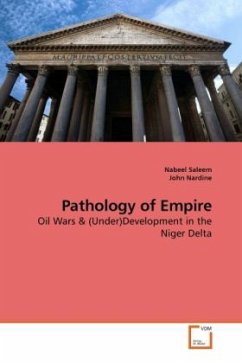Resource-rich countries are marred by increased civil conflict and lag far behind the development of their resource-poor counterparts. The U.S. is shifting its focus from the Middle East to West Africa as a major supplier of energy. Other major powers, such as China, are also competing for energy resources found in Africa and elsewhere. The Niger Delta, despite producing substantially to the major oil markets, remains locked in abject poverty and underdevelopment. This study has its primary focus on the impact that oil resources have had on the Niger Delta, which has been mostly negative for people living in the area. Employing classical analytical frameworks, like world-system theory, but applying in an innovative way, the authors aim to shed light on the relationship between policy decisions taken at the GLOBAL level, and their impact on the lives of the LOCALS. The resistance and struggle of the people of the area for justice form a major background of this investigation.








